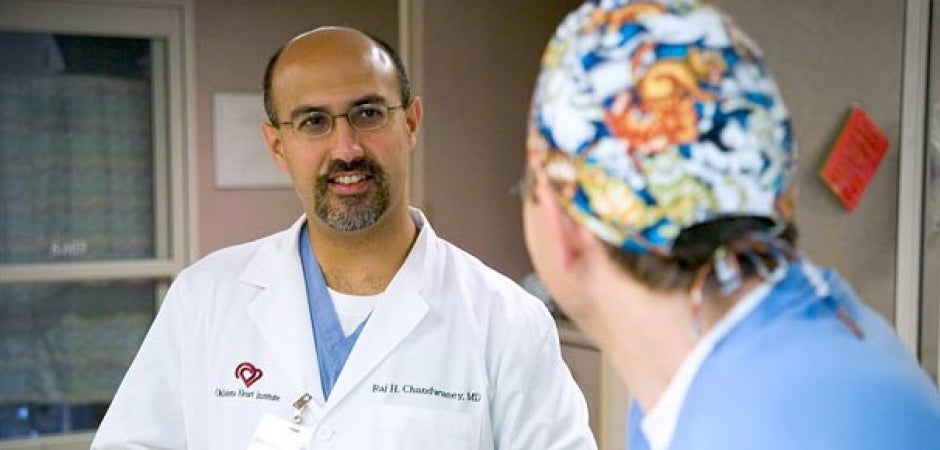The prevention clinics at Oklahoma Heart Institute identify and aggressively treat the risk factors known to promote the development of heart attacks and strokes.
In the area of diagnosis, Oklahoma Heart Institute has the region’s most complete and sophisticated noninvasive imaging program, including advanced cardiovascular MRI, CT, ultrasound, and nuclear imaging tests.
Oklahoma Heart Institute cardiologists were the first in Oklahoma to utilize the Impella percutaneous circulatory assist device to treat very high-risk patients with severe blockages of the blood vessels to their heart. Oklahoma Heart invasive cardiologists were the first in Tulsa to percutaneously close holes in the heart (PFO and ASD) in adults, eliminating the need for heart surgery. In addition, Oklahoma Heart invasive cardiologists pioneered the establishment of a hypothermia program in Tulsa to improve the chance of neurologic recovery in patients suffering from cardiac arrest.
Not only do Oklahoma Heart cardiologists evaluate and treat coronary and peripheral arterial disease, but Oklahoma Heart Institute also offers an advanced vein clinic for treating people with chronic venous insufficiency.
In the field of rhythm problems, Oklahoma Heart Institute has a distinctive electrophysiology program. Our physicians are able to treat difficult to control atrial and ventricular rhythms. In many cases, the patients can have their rhythms abolished by use of ablation therapy for both atrial and ventricular rhythm disturbances. The Advanced Center for Atrial Fibrillation is a unique specialist clinic for patients with simple to difficult-to-control atrial fibrillation.
In addition, the cardiologists at Oklahoma Heart Institute have been involved in pioneering research in the field of cardiology for over 20 years. This provides patients access to new treatment options that normally would not be available for years.
Quality, precision, advancements, results – there is a reason nobody does it better than Oklahoma Heart Institute’s Cardiology Division.

